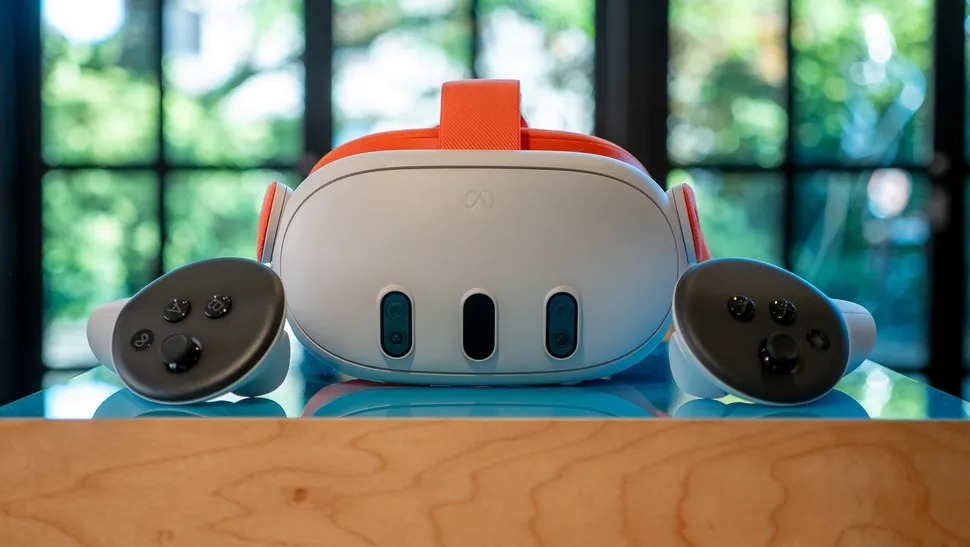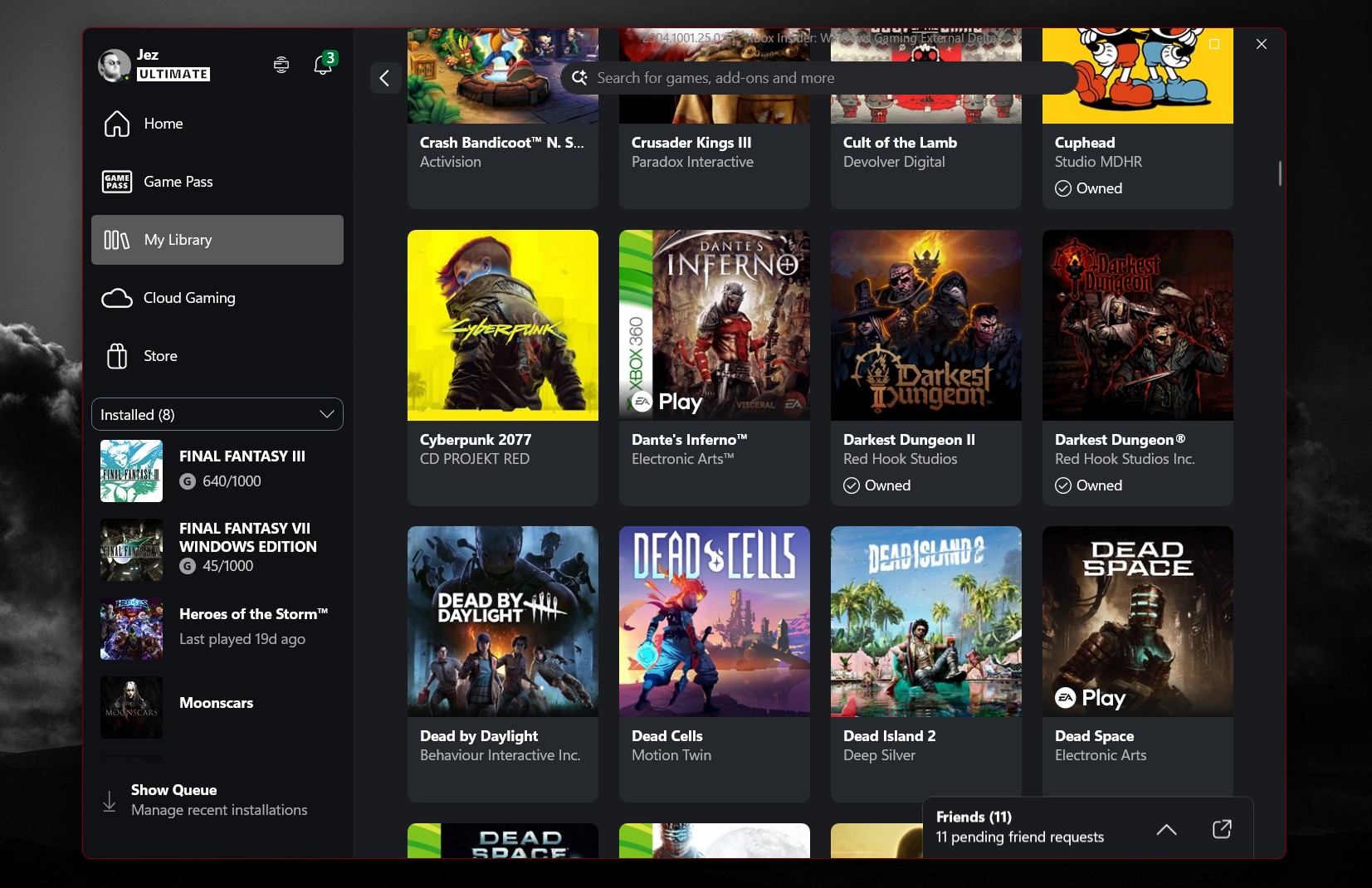Microsoft just killed Windows Mixed Reality but the company's VR vision lives on thanks to a surprising savior in Meta Quest
Office and Xbox Cloud Gaming (beta) are already available on Meta Quest, and more Microsoft apps are on the way.

What you need to know
- Microsoft announced the deprecation of Windows Mixed Reality, marking the end of the Windows-based VR ecosystem.
- The last Windows Mixed Reality headset to come out was the HP Reverb G2, which was released in 2021.
- At least part of Microsoft's vision for virtual reality will continue on Meta Quest and Meta's VR platform.
- Microsoft recently launched Word, Excel, and PowerPoint for Meta Quest and shipped Xbox Cloud Gaming (beta) to the headsets.
Microsoft recently announced the deprecation of Windows Mixed Reality. The news was hardly shocking, considering the last Windows Mixed Reality headset shipped in 2021. Our Senior Editor Zac Bowden explained, "it's clear that Mixed Reality at Microsoft is a dead venture." There isn't a true successor to HoloLens 2 on the way.
While Windows Mixed Reality is on the way out, Microsoft has not abandoned virtual reality. In fact, the company shipped several of its most popular apps to Meta Quest 3 earlier this month. Xbox Cloud Gaming came out in beta, and Word, Excel, and PowerPoint are all generally available.
We will likely never see the VR vision that Microsoft showcased on stage back in 2015, but many of Microsoft's most important apps and services will live on in virtual reality.
While I'd love to see a fully backed Windows Mixed Reality with developers on board, that seems to have been a pipe dream. But Facebook has been in the VR game for years, and Android Central named the Meta Quest 3 the best VR headset on the market. Microsoft can lean into the Quest ecosystem and get its apps in front of users' faces, all without creating and maintaining its own VR platform.
Xbox Cloud Gaming on Meta Quest 3

The Xbox team does not seem to value native VR titles, but Microsoft has released Xbox Cloud Gaming (beta) on Meta Quest. The app lets you stream hundreds of games to the headset's large virtual screens. It's a bit like having one of the best TVs for Xbox strapped to your face.
The Xbox Cloud Gaming app can be used when fully immersed or with Passthrough mode. Neither of those will provide a social gaming experience for people you share a room with, but Xbox Cloud Gaming with Passthrough mode feels more like playing on a TV than locking yourself in VR for your whole gaming session.
Notably, Xbox Cloud Gaming streams games from the cloud, so it's not the same as playing native games. The games are also limited to a virtual screen rather than taking advantage of VR, but that's okay. The Meta Quest store has a ton of games that take full advantage of the headset's hardware. Xbox Cloud Gaming is a bonus, especially if you already have an Xbox Game Pass Ultimate membership.
Get the Windows Central Newsletter
All the latest news, reviews, and guides for Windows and Xbox diehards.
Xbox Cloud Gaming coming to Meta Quest seems like a solid compromise that brings popular Xbox titles to Meta Quest without Microsoft having to invest many additional resources. Xbox Cloud Gaming already works on phones, tablets, PCs, and some consoles. Now, it works in VR as well.
Microsoft Office on Meta Quest 3
Microsoft Word, PowerPoint, and Excel were added to the Meta Quest Store earlier this month. Those apps allow you to span your workflow across multiple virtual monitors and work with passthrough mode to let you see your office as you work. The apps even work with a Bluetooth mouth and keyboard to blend physical accessories with virtual applications.
Nicholas Sutrich, Senior Content Producer at Android Central, shared a brief video on the Office apps after they launched.
Word, PowerPoint, and Excel are part of the first wave of Microsoft 365 apps and services to ship to Meta Quest. Outlook, SharePoint, and even Windows 365 Cloud PCs will come in the future.
Microsoft making its biggest productivity apps available on Meta Quest is a welcome gesture. Virtual work and the Metaverse may not have exploded the way people once thought they would, but the Meta Quest 3 could convince a few people to work in mixed reality. Microsoft 365 support for Meta Quest means Microsoft can stay in front of people's eyeballs without maintaining its own VR platform.
Meta Quest 3 vs HoloLens 2

Meta Quest 3 and HoloLens 2 are different headsets, but part of Microsoft's vision of augmented reality lives on in Meta Quest 3. Meta and Microsoft approached augmented reality from different directions, but the end result is similar enough that everyday users can feel like VR mixes with the real world.
HoloLens 2 has a see-through visor and a variety of sensors that allow you to overlay virtual content over your real-world surroundings. It's a clever setup for industrial work, but it isn't the best for a gaming headset. While augmented reality is useful, especially in professional settings, there are times when you want to be fully immersed in VR.
Rather than make a headset with a see-through screen, Meta placed several cameras on Quest 3 for the headset's passthrough mode. The cameras are good enough to read text on a phone and see the world around you. Your surroundings aren't as clear as when using HoloLens 2, but the cameras are good enough.
Meta's approach to augmented reality means you can mix virtual reality and reality when you want and swap to full immersion any time you'd like. That's a better setup for a consumer-focused headset.
Meta Quest 3 does not replace the enterprise features of HoloLens 2, but it does a much better job as a consumer headset. It seems that was the right strategy, as Meta Quest 3 is one of the hottest gifts of the holidays, and Windows Mixed Reality was just deprecated.

Sean Endicott is a tech journalist at Windows Central, specializing in Windows, Microsoft software, AI, and PCs. He's covered major launches, from Windows 10 and 11 to the rise of AI tools like ChatGPT. Sean's journey began with the Lumia 740, leading to strong ties with app developers. Outside writing, he coaches American football, utilizing Microsoft services to manage his team. He studied broadcast journalism at Nottingham Trent University and is active on X @SeanEndicott_ and Threads @sean_endicott_.
